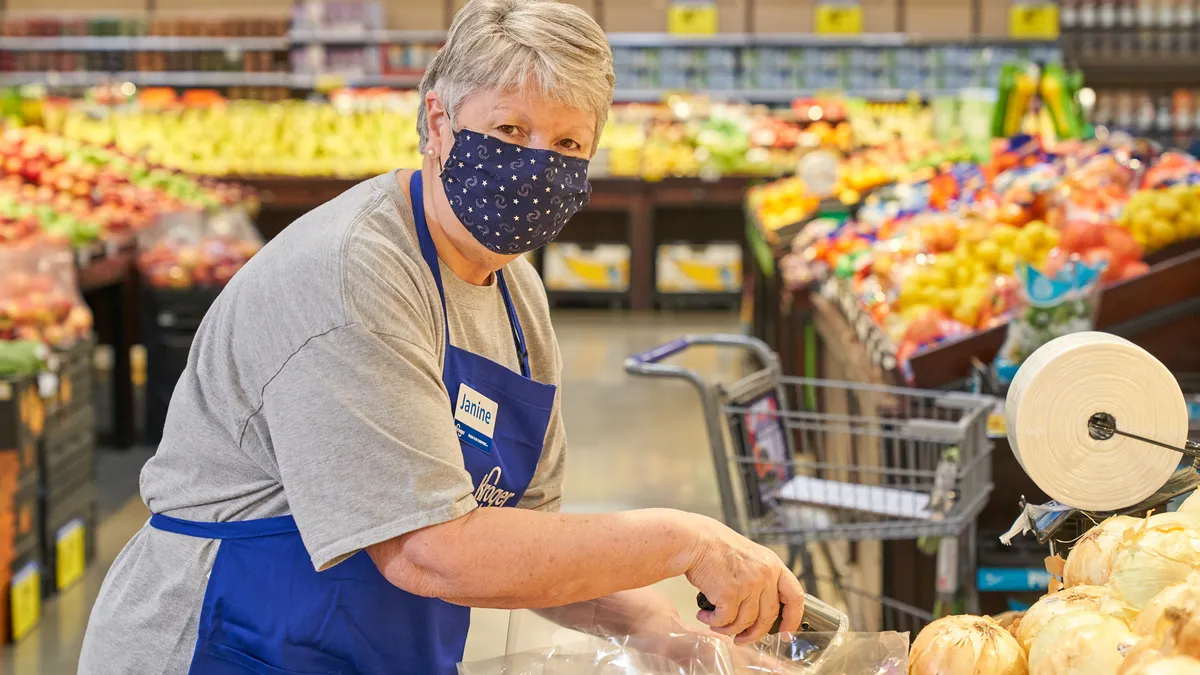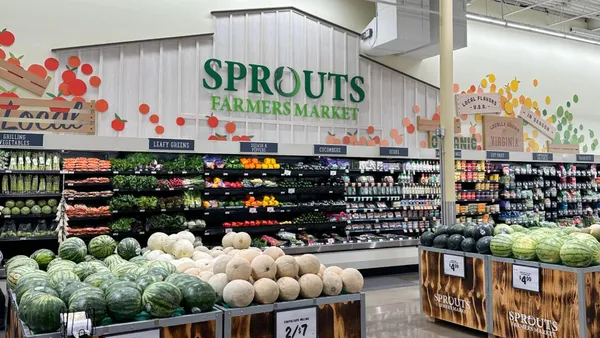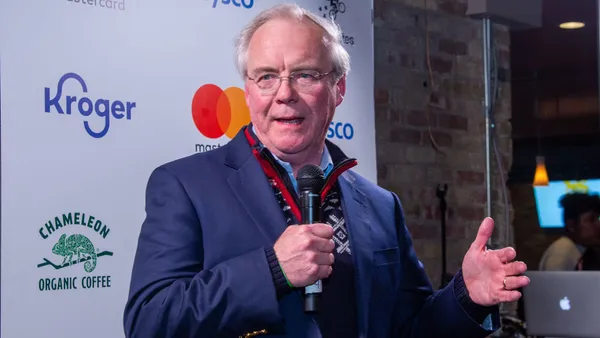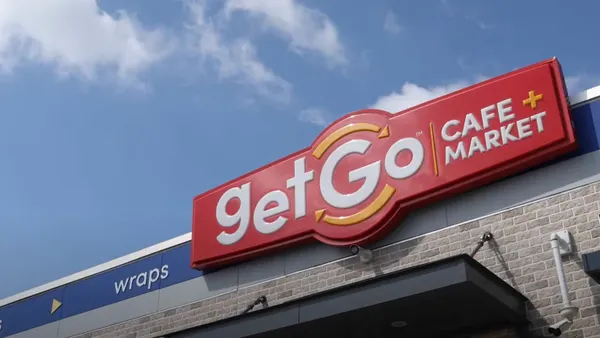Dive Brief:
- Kroger announced Tuesday a pledge to boost its assortment of local products if its proposed merger with Albertsons gets approved.
- The grocery company said it will increase the number of local products in its stores by 10% — an increase of at least 30 new items per store — post-close.
- The announcement comes as Kroger makes various commitments and assurances to bolster the proposed merger, which is undergoing regulatory review.
Dive Insight:
Facing scrutiny on the proposed merger’s potential impacts on suppliers, customers and fellow competitors, Kroger’s local sourcing commitment aims to highlight a plan that would help smaller business owners and producers.
“We are dedicated to supporting the innovation that only a small business owner can create,” Kroger CEO and Chairman Rodney McMullen said in a statement.
The announcement outlined different ways Kroger already supports local suppliers, including selling produce from local farmers, having dedicated shelf space in “many stores” with special signage for just local items and working directly with farmers and local producers.
Earlier this year, Kroger expanded its digital farmers market pilot, which was announced last year, to two more markets: Knoxville, Tennessee, and Columbus, Ohio.
Consumers often support local brands because they want to support the local economy and find different items they can’t find elsewhere, per research from PDG Insights earlier this year.
“Consumers under 35 are intentionally buying local brands in twice as many categories as those 55 and older,” said Diana Sheehan, principal and CEO of PDG Insights, noting that retailers and brands have opportunities to better communicate the backstories of various products with in-store signage in select categories.
Kroger’s local pledge follows the company’s announced store divestiture plan with Albertsons, which would sell more than 400 stores and several private brands to C&S Wholesale Grocers. That proposed divestiture deal raises the likelihood of the mega-merger closing successfully to around 50%, according to two Wall Street firms.












